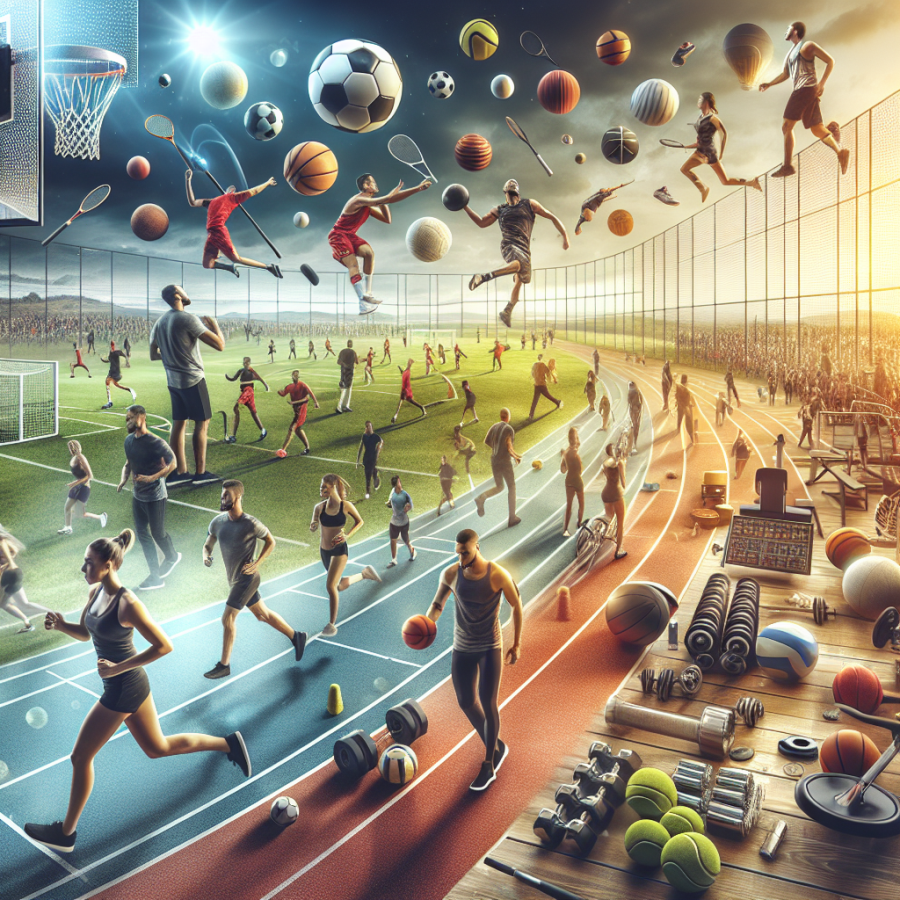Building Cohesive Communities Through Sports Clubs Activities
In community building, sports clubs can be a veritable goldmine. Through sports activities, children, teens and adults can foster meaningful relationships, build up a strong sense of community, and develop impressive sportsmanship skills. Indeed, sports clubs are at the forefront of strengthening communities, as well as fostering talents.
The first significant contribution to unity derives from the very essence of sports: teamwork. It is practically impossible to achieve success in any sport without the coordinated efforts of a team. In sports clubs, participants learn to rely on each other, to listen to one another, and to respect the strengths that each individual brings to the table. This synergy cultivates strong bonds among the club members, creating a sense of community that goes beyond the playing field.
Moreover, sports clubs activities bring together individuals with diverse backgrounds. This diversity of experiences and perspectives contributes to a better understanding of one another. Club members learn to appreciate their differences and to value the strength that exists in diversity. In turn, this fosters a sense of inclusion and unity within the community.
Additionally, sports clubs activities are an excellent platform for imparting skills and ethics to the participants. Apart from sport-specific skills, sports clubs encourage the development of important life skills like discipline, resilience, and responsibility. These skills are not only crucial for excelling in sports but also in managing everyday challenges.
Sports clubs activities also contribute significantly to physical health and wellbeing. Regular physical activities can improve mental health, increase self-esteem and reduce stress and anxiety. When community members are physically and mentally healthy, they are more likely to take an active role in community development and social activities.
Furthermore, sports clubs activities provide constructive outlets for energy and passion. This is especially true for young people who have a plethora of energy to expend. Instead of channeling their energy into negative pursuits, sports clubs provide a shaped pathway to express their energy and passion positively. This not only contributes to personal development but also reduces the likelihood of involvement in antisocial activities.
Lastly, the strong sense of affiliation and identification with a sports club can give rise to increased civic pride within a community. A local sports club often becomes a symbol of community identity and rallying point for local residents. This increased civic pride can lead to stronger community bonds and promote more active participation in community affairs.
In sum, the benefits of sports clubs activities extend well beyond the development of sports talents. They play a pivotal role in shaping talents, fostering unity and building overall stronger communities.
Read also:
Measuring Land: The Count of Soccer Pitches in an Acre
Unleashing Athletic Talent: The Pivotal Role of Sports Clubs
Sports clubs are critical in honing the skills of athletes and developing their talent to a professional level. They play a pivotal role as they provide a structured environment where athletes can learn and excel under adequate supervision of trainers and coaches. By extending resources, training, and guidance, sports clubs become instrumental to an athlete’s journey towards refining and highlighting their aptitude for sports.
Sports clubs are remarkable platforms for nurturing athletic talent as they provide the right training to athletes, enhancing their natural skills. Specific, consistent, and guided training routines delivered by qualified coaches help athletes perfect their expertise in their chosen field of sports. The professional training provided in clubs focuses on the unique strengths of every athlete, thus fostering their sportsmanship and potentially carving pathways for them to step into professional domains.
Moreover, the coaches and trainers at these clubs play a vital role in shaping the athlete's skills. Their knowledge and experience are vital assets that facilitate the growth and development of athletes. From teaching techniques and strategies to instilling perseverance and building character, the trainers help the athletes unleash their full potential. They recognize the talents sports individuals have and work relentlessly to further polish those talents.
Additionally, participating in a sports club allows athletes to engage in the competitive side of sports. This exposure sharpens their skills as the athletes learn to take defeat positively and work towards better performance. It makes them resilient and teaches them to handle pressure situations, which are valuable lessons applicable in their professional journey.
Experiences at sports clubs also offer athletes a broader understanding of health and wellbeing such as nutritional requirements, sleep cycles, and the importance of recovery time. By incorporating these into their training, sports clubs ensure athletes understand the necessitas of maintaining a healthy balance between their sport and lifestyle, enabling them to deliver their best performance.
Sports clubs also foster a sense of community and belonging among athletes. They encourage team spirit and camaraderie, which not only uplift the athletes' morale but also infuse an innate sense of sportsmanship in them. Participating in a club allows athletes to network with other individuals who share the same passion, providing a supportive environment that aids their personal growth.
The development of leadership skills is another substantial outcome of sports clubs. When athletes collaborate, strategize, and play as a team, they often step up to motivate and guide each other. This promotes leadership qualities and teamwork amongst athletes – traits that are essential both in sports and real-life scenarios.
In summary, sports clubs deliver a multi-dimensional impact on athletes.




